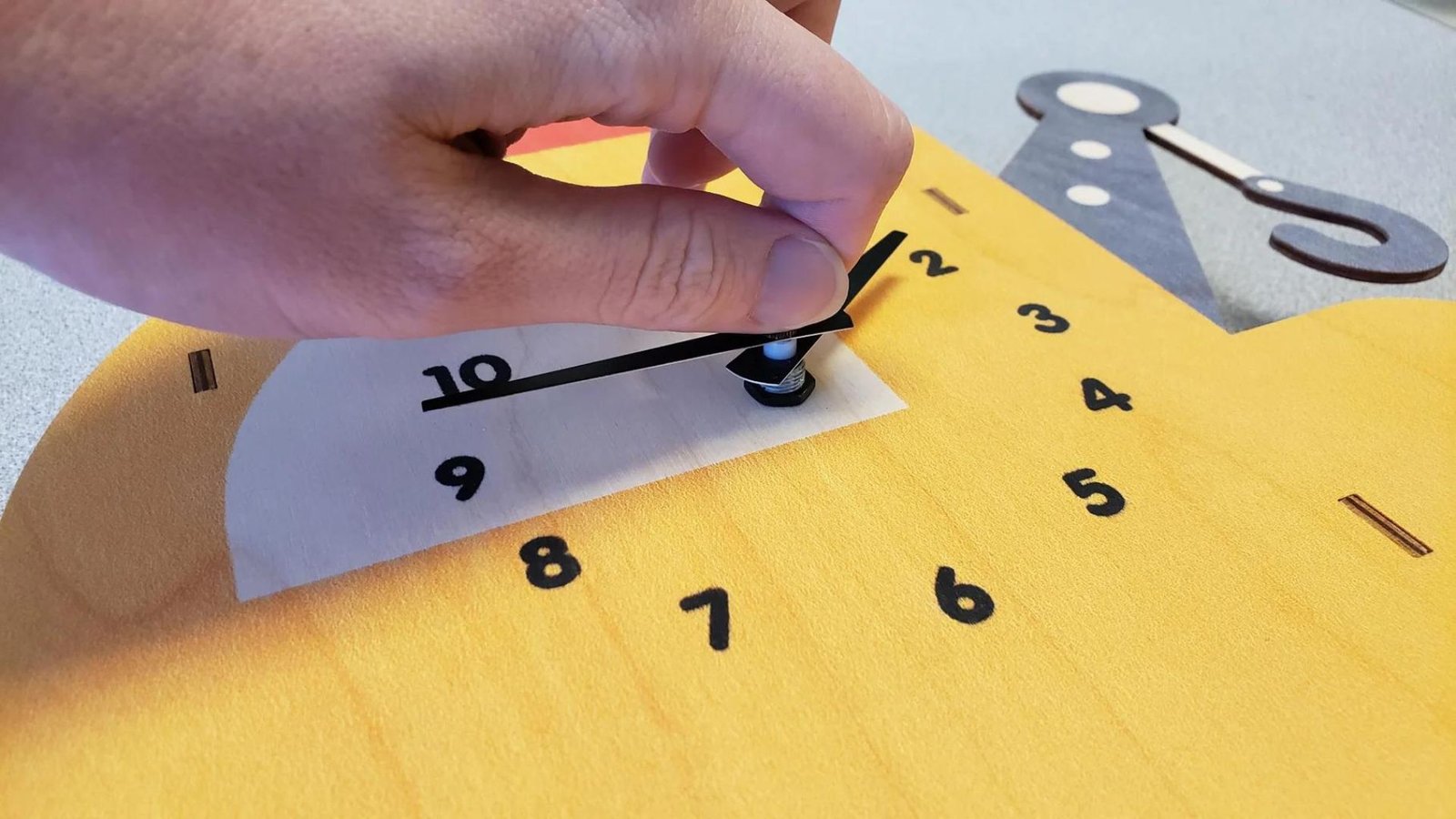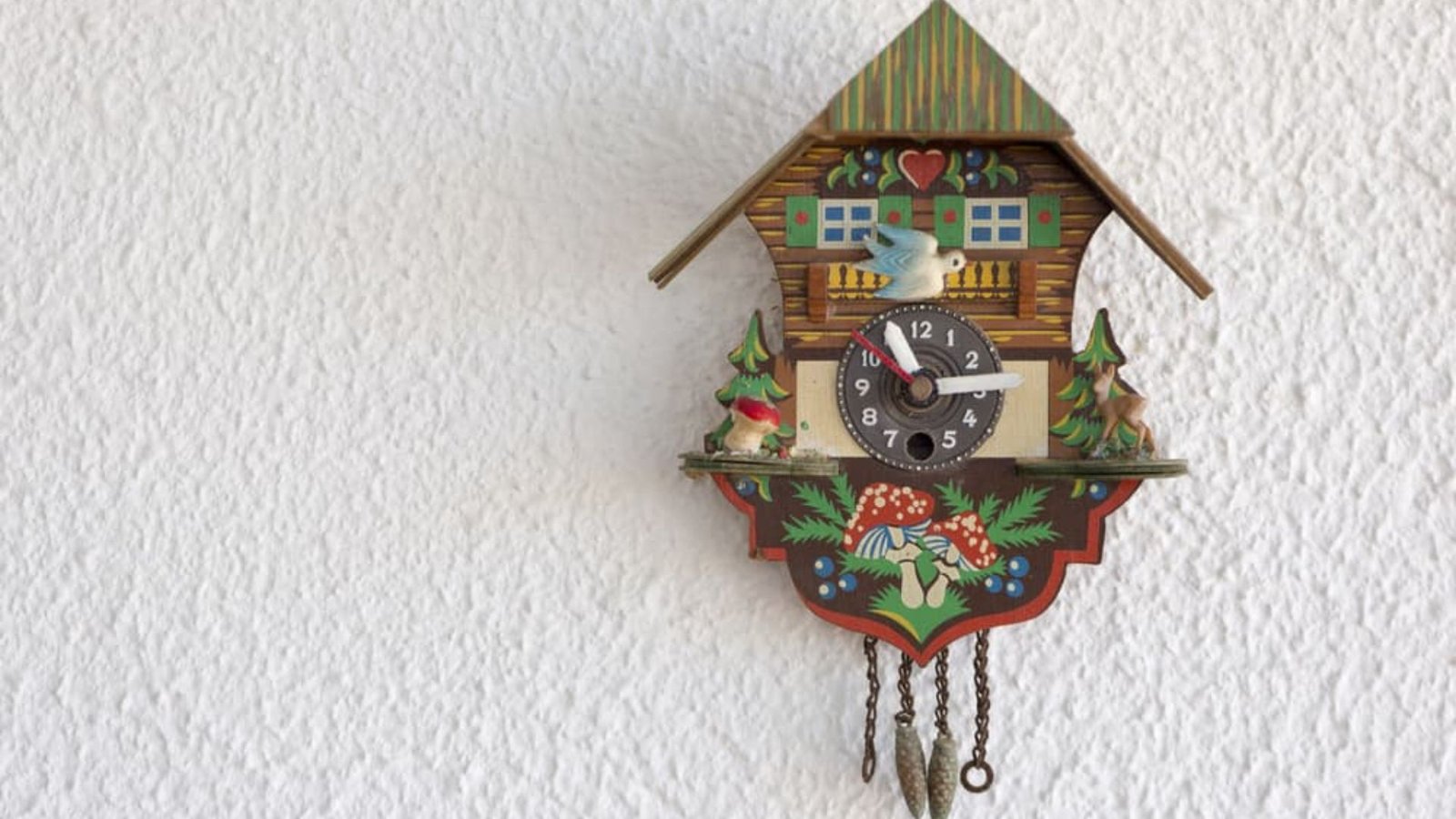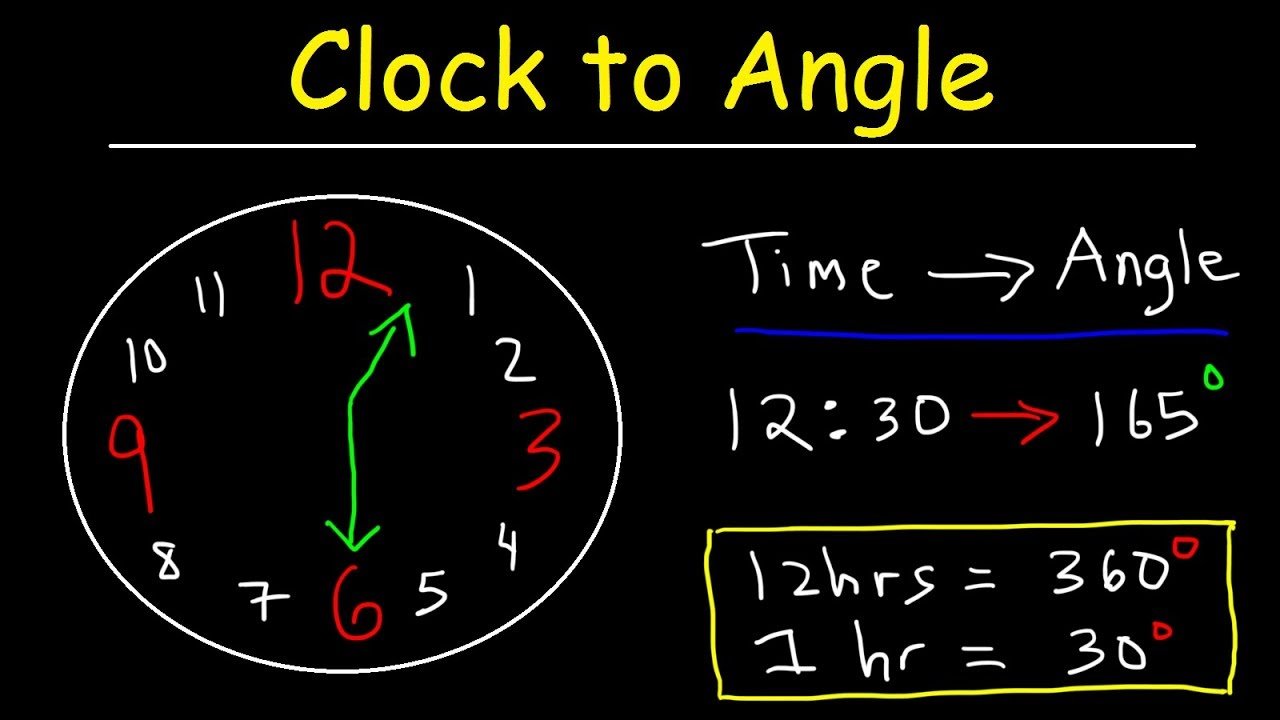If your clock is consistently losing time, it can be frustrating. Fortunately, fixing a slow clock is often a straightforward process that you can do at home with a few tools. Whether it’s a battery-operated, mechanical, or pendulum clock, these steps can help resolve the issue.

Check and Replace the Battery
One of the most common reasons a clock loses time is a weak or dead battery. To fix this:
- Remove the Old Battery: Open the battery compartment, typically located on the back of the clock, and remove the old battery.
- Check for Corrosion: Inspect the battery terminals for corrosion, which can prevent the battery from properly powering the clock. If corrosion is present, clean the terminals with a cotton swab dipped in vinegar or baking soda solution.
- Insert a New Battery: Replace the battery with a fresh one, ensuring it is the correct size and inserted properly with the right polarity.
Once the battery is replaced, monitor the clock to see if it keeps accurate time.
Adjust the Time Setting
Sometimes the clock’s time setting may have been accidentally moved, causing it to lose time. Here’s how to correct this:
- Turn the Adjustment Dial: Gently turn the clock’s time adjustment dial on the back of the clock to reset the time.
- Set the Correct Time: Ensure that the hands move smoothly and align properly with the numbers on the clock face.
- Observe: After setting the time, monitor the clock for a few hours or days to ensure it is running on time.
Examine the Movement Mechanism
For mechanical clocks, such as pendulum clocks or those with gear-driven movements, the internal mechanism may be the issue. Here’s what you can do:
- Clean the Movement: Dust and debris can clog the gears, causing the clock to slow down. Carefully remove the back of the clock and use compressed air or a soft brush to clean the internal parts.
- Lubricate the Gears: Use clock oil to lubricate the gears. Be careful not to over-lubricate, as too much oil can attract dirt and cause more problems.
- Realign Gears: If the gears are misaligned, gently adjust them to ensure they engage correctly. Misaligned gears can cause friction, slowing down the clock.
Check the Pendulum (For Pendulum Clocks)
For pendulum clocks, the pendulum’s length or speed can affect timekeeping. To fix this:
- Adjust the Pendulum: Most pendulum clocks have a small adjustment nut or screw at the bottom of the pendulum. Turn the nut clockwise to speed up the pendulum (if the clock is slow) or counterclockwise to slow it down (if the clock is fast).
- Test: Make small adjustments and monitor the clock for 24 hours to see if it keeps better time.
Fix the Escapement Mechanism (For Mechanical Clocks)
The escapement is the part of a mechanical clock that controls the release of energy from the gears. If the escapement is not functioning properly, the clock will lose time. To fix this:
- Listen for Ticking: The escapement should make a regular ticking sound. If the ticking is uneven or erratic, it may need adjustment.
- Consult a Professional: Escapement adjustments can be tricky, so if you’re not experienced with clock repairs, it’s best to consult a professional clockmaker for help.
Reset the Quartz Movement (For Quartz Clocks)
Quartz clocks rely on a small quartz crystal to keep time. If your quartz clock is losing time, try resetting it:
- Remove and Reinsert the Battery: Take out the battery, wait a few minutes, then reinsert it. This can reset the clock’s internal quartz movement.
- Check the Time: After resetting the quartz movement, set the time again and observe if the clock keeps accurate time.
Conclusion
Fixing a clock that loses time can often be resolved by simple steps like changing the battery, adjusting the time, or cleaning the movement. For more complex issues, particularly in mechanical or pendulum clocks, careful adjustments to the gears, escapement, or pendulum can bring your clock back to accurate timekeeping. If in doubt, don’t hesitate to seek help from a professional clockmaker.




There is obviously a bunch to identify about this. I consider you made certain nice points in features also.
Insgesamt steigt der Wert des Willkommensbonus somit auf bis zu fünf Millionen Chips an.
Für den ersten positiven Eindruck bei den neuen Spielern sorgt der Anbieter direkt nach dem Start.
Lasst euch von den verschiedenen Möglichkeiten inspirieren und findet heraus, welche für euch am besten funktionieren. Zusammenfassend lässt sich sagen, dass es verschiedene Möglichkeiten gibt,
kostenlose Chips im Huuuge Casino Mobile-Spiel zu erhalten.
So sicherst du dir sofortigen Nachschub und kannst direkt mit den nächsten Spielrunden weitermachen. Hier kannst du mit verschiedenen Zahlungsmethoden unterschiedliche Chip-Pakete kaufen. Wer möchte, kann also
direkt mit der App loslegen und sich den „Umweg“ über die Webseite des Casinos sparen. Abwickeln kannst du mit dieser
zum Beispiel auch die Registrierung. Auf der Webseite bietet das Casino nur sehr wenige bis
gar keine Informationen. Im Shop solltest du die Augen deshalb immer
weit offenhalten, um keines der möglichen Einzahlungsangebote zu verpassen.
References:
https://online-spielhallen.de/kings-casino-ihr-mobiles-spielvergnugen-fur-unterwegs/
Ein guter Kundenservice sollte 24/7 verfügbar sein, freundliche und qualitativ hochwertige Antworten bieten und umfassende FAQ-Bereiche haben. Die browserbasierten Versionen passen sich automatisch an die
Bildschirmgröße des Geräts an, um ein optimales Spielerlebnis zu bieten. LeoVegas bietet eine mobil optimierte,
preisgekrönte App, die das Spielen unterwegs zum Vergnügen macht.
In deutschen Online Casinos gibt es in der Regel keine Gebühren oder Zusatzkosten bei den Auszahlungen.
Ein Spielautomat ist ein mechanisches, elektromechanisches oder digitales Glücksspielgerät, das Ihnen die Chance gibt, viel
mehr zu gewinnen als den ursprünglichen Einsatz, den Sie
platziert haben. Ich habe jeden Anbieter selbst besucht und jedes Glücksspiel selbst gespielt, über das
ich euch berichte. Seit 2006 schreibe ich schon für die Online Glücksspielbranche und im Jahr 2018 wurde mein Hobby zum Beruf.
References:
https://online-spielhallen.de/iwild-casino-mobile-app-dein-spielvergnugen-fur-unterwegs/
Leon Casino guarantees that every player experience is secure and transparent.
“Leon Casino is everything a modern Aussie casino should be — fast, fair and fun. Every feature is designed with players in mind, making Leon Casino one of the most reliable and exciting destinations in the market. The site is easy to navigate, bonuses are simple to claim and payments always arrive on time. Leon Casino has earned a name among Australian players for combining speed, transparency and high quality entertainment. It’s a system built on transparency and exclusivity — the more you play, the more the casino gives back.
Leon Casino offers a comprehensive range of payment methods, catering to the preferences of Australian players. A minimum deposit of A$20 is required for each stage, and bonuses come with a 35x wagering requirement to be completed within 30 days. Whether you’re playing on desktop or mobile, the interface is intuitive and responsive, ensuring smooth gameplay. The games are powered by reputable software providers, ensuring smooth gameplay and fair outcomes. These titles are inspired by the growing popularity of multiplier-based gameplay, where players place a bet and watch as a multiplier increases rapidly on the screen. Pokies are the centrepiece of Leon Casino’s game library, with over 3,500 titles available for Australian players.
References:
https://blackcoin.co/best-uk-high-roller-online-casinos/
Whether you need to manage your company accounts or need to schedule an appointment to
meet one of our business specialists, we’ve got branches located up and down the country.
We’ve produced some handy ‘how to’ videos to help you with your
business banking. To aid others reading this information, please let us know if
any of this banks details have been altered. Read our current terms Additional terms and conditions
for using Business Internet Banking conditions for
business banking Read our current terms and conditions for business banking Easily access a wide range
of business services 24/7, subject to planned maintenance periods
But if you want to apply the update straight away, just click the three dots to the right of the message and select the first menu item.
Explore our help center to learn more about updates and other ways to use Chrome.
But if you want to apply the update right away, just click the three dots to the
right of the message and select the first menu item.
Need to complete some banking with HSBC? Opening times & information for your
local banks around the UK Explore our industry insights and banking capabilities in a
simpler way Find out more about online security Activate this service online or in branch Billericay belongs to the HSBC
banking brand.
References:
https://blackcoin.co/play-free-slots-%f0%9f%8e%b0-browse-19430-online-slot-games/
While they offer extra funds, wagering requirements can make cashing out a challenge.
It’s made for Aussies, super easy to use, and packed with pokies.
If you need more details, read our expert reviews to learn about game selection, security, and payouts.
However, withdrawal times can vary depending on the casino’s processing times.
However, if gambling is your primary source of income or is conducted as a business, you may be liable for
taxes. The Australian Taxation Office considers gambling winnings as a result
of luck rather than income.
There is no point in trying to chase your losses, and
if you’re having an unlucky day, then you’re just having an unlucky day.(“”) For all players,
our first tip is to never drink while you are
gambling. While a few games offer a decent house edge
and better odds, they are purely chance based. Some of these games are traditional while others are
spin-offs from classic gambling games. Video Poker is also quite the catch because the game allows
for decision-making to come into play, giving punters a sense of
control over the fate of their games, rather than relying solely
on luck. For those players that are looking for a game that requires some skill and strategy, video poker
may be the best option for you. Each game usually has
the same format; players bet small amounts in the hope of
winning larger payouts.
References:
https://blackcoin.co/what-to-wear-for-the-casino-dress-code-and-whatll-get-you-kicked-out/
Free professional educational courses for online casino employees aimed at industry best practices,
improving player experience, and fair approach to gambling.
New players who create an account and make a real money deposit are eligible for this welcome deposit bonus.
The maximum amount of money players can win from this deposit
bonus is limited to 10x the bonus. This deposit bonus from Richard Casino
awards players with bonus funds worth 50% of their deposit, up to €1,000.
Please allow us to provide some clarity.The maximum cashout from the
Bonus Cash 10 (SC) bonus, which is granted for the Scratch
Card, is 250 AUD.The max cashout limit is a standard condition outlined in our Bonus Terms and Conditions, which are
agreed upon when claiming the bonus. Don’t waste ur TIME or MONEY on this dodgy casino site.
Spending hours on the site playing through the wager with my account still at $800.
This approach allows you to explore our vast game library with a significantly boosted bankroll, giving you the best possible start at Casino Richard.
Here, every element is engineered for a secure, fair, and seamless entertainment experience.
Searching for a premium gaming destination that combines a massive welcome offer with instant access to
your winnings? Richard Casino takes customer support seriously, ensuring help is always at hand when you need it.
With more than 4,000 titles from over 70 providers, the
platform ensures that every type of player finds something to enjoy.
This introduction sets the stage for a deep dive into each component of Richard Casino,
revealing how it balances opulence with functional gaming.
References:
https://blackcoin.co/paysafecard-casinos/
casino mit paypal
References:
teba.timbaktuu.com
online betting with paypal winnersbet
References:
neulbom24.co.kr
Về tiềm lực tài chính, game 188v mỗi tháng có hơn 12 nghìn tỷ đô được công ty chủ quản “đổ vào”. Đây cũng là lý do vì sao nhà cái lại chưa một lần “dính” phải tin đồn lừa đảo hay quỵt tiền hội viên. Thay vào đó là tỷ lệ thưởng cao, khuyến mãi hấp dẫn, đại lý hoa hồng khủng. TONY12-26
online casinos that accept paypal
References:
https://mcn-kw.com/employer/online-casino-mit-paypal-einzahlung-die-top-casinos-im-vergleich/
paypal casino
References:
https://page.yadeep.com/tanyabrace
online pokies paypal
References:
https://jobsahi.com/employer/best-online-casinos-in-australia-2025-bnc-au/
online casino that accepts paypal
References:
https://ehdrmffn.site/bbs/board.php?bo_table=free&wr_id=1804